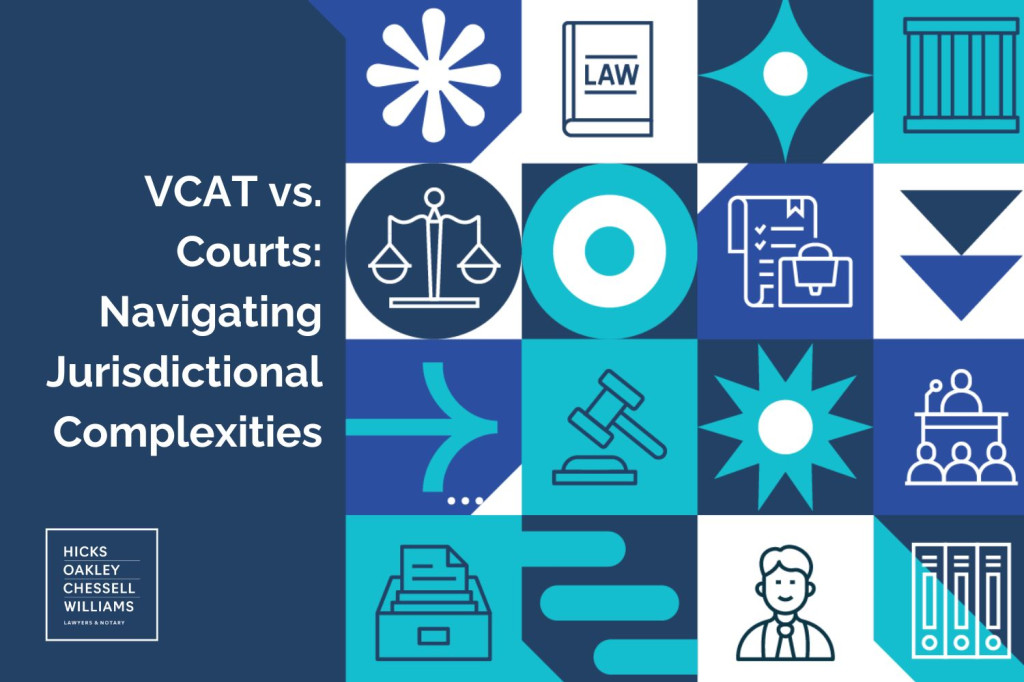VCAT vs. Courts: Navigating Jurisdictional Complexities
The Victorian Civil and Administrative Tribunal (VCAT) has a very wide jurisdiction to determine many different types of disputes, including:
Consumer claims relying on breaches of the Australian Consumer Law
Domestic building disputes
Planning issues
Residential tenancies
Guardianship and administration
Retail lease disputes
Co-owned land disputes.
But, as highlighted in a very recent decision, it’s important to clarify that VCAT is not a court.
What happens if the claim commenced in VCAT is by its nature more appropriately heard in a court?
Section 77 of the Victorian Civil and Administrative Tribunal Act (“the Act”) allows a claim in the Tribunal to be struck out if it would be more appropriately dealt with in a court or another tribunal or body. In a decision published on 5 March 2024 (Plunkett v. Portier Pacific Pty Ltd [2024] VCAT 205) Justice Woodward sitting as the President of VCAT struck out the proceeding and ordered that it be referred to the Supreme Court.
In Plunkett, the applicants claimed that the respondents had engaged in misleading and deceptive conduct in relation to the radius of the area promised in the operation of the Uber Eats app. The applicants alleged that they had invested monies based on representations that were false. Damages exceeding $1million were claimed.
Justice Woodward considered the wide discretion that Section 77 allowed in order to determine whether the claim could more appropriately be heard elsewhere. His Honour found that the Tribunal was less able than the courts to grapple with complex claims for various reasons. These included (a full list appears at para. 40 of the decision):
The comparative lack of resources at VCAT and in particular its inability at registry level to triage and closely manage complex cases
The lack of associates and dedicated legal assistants at VCAT compared with what is available in the courts
A lack of transcripts available for VCAT hearings
VCAT does not generally have judge or member-controlled cases and there can be duplication in members case-managing and hearing matters
The availability of County Court judges to hear VCAT matters was not as great as had initially been envisaged
Ongoing backlogs in various VCAT lists.
Justice Woodward referred in particular to the following considerations in deciding that it was more appropriate for the Supreme Court to hear the case:
The amount of the claim exceeded $1million
Its complexity (including the corporate structure of the corporate respondents, some of which are based in the Netherlands)
A likely duration of 10 days for the final hearing
Case management considerations and the benefit of regular case management by a single judicial officer
The Supreme Court has jurisdiction and can make all the orders that may be required.
For any inquiries about commencing a claim in VCAT (or in a court!) do not hesitate to contact Matthew Hicks, Director and Principal Lawyer, Accredited Specialist in Commercial Litigation on (03) 9629 7411.


